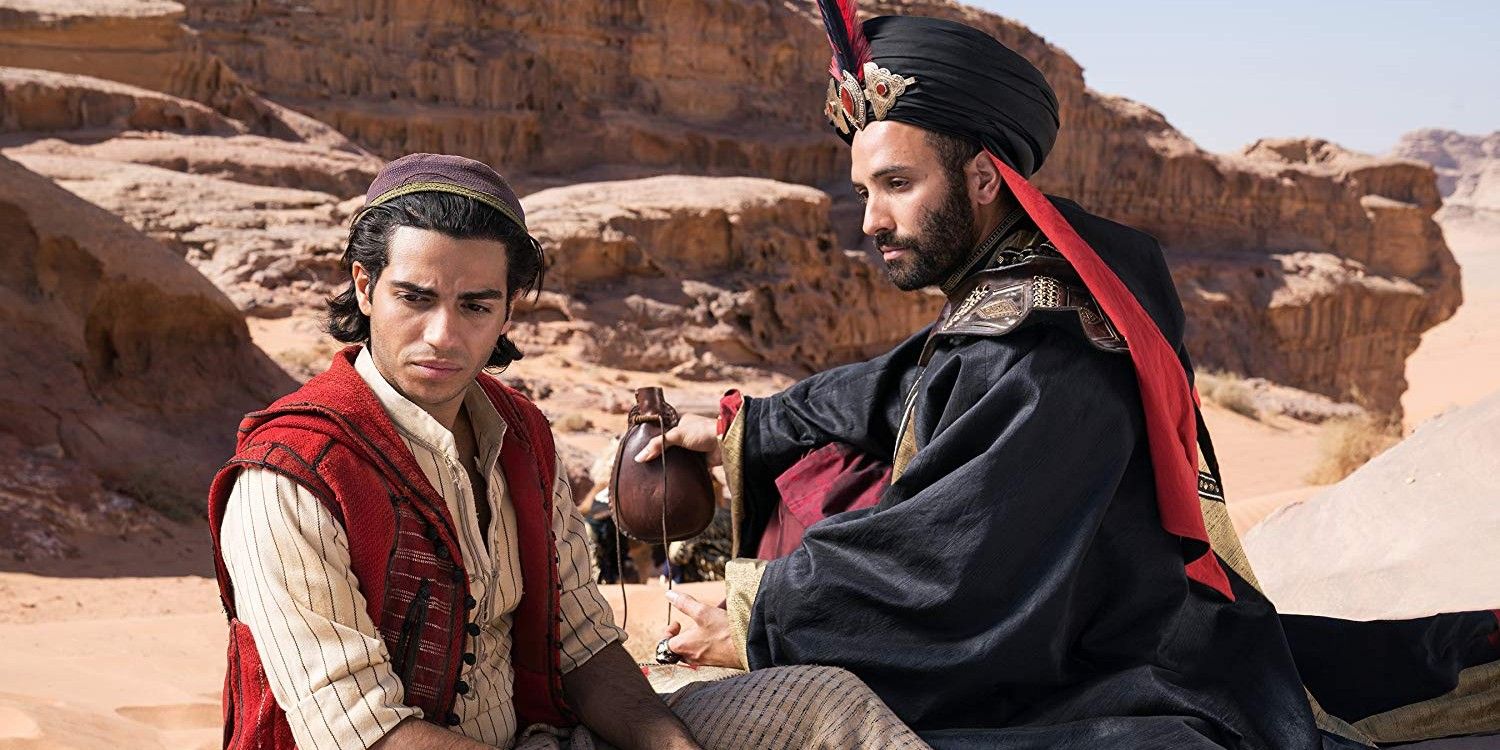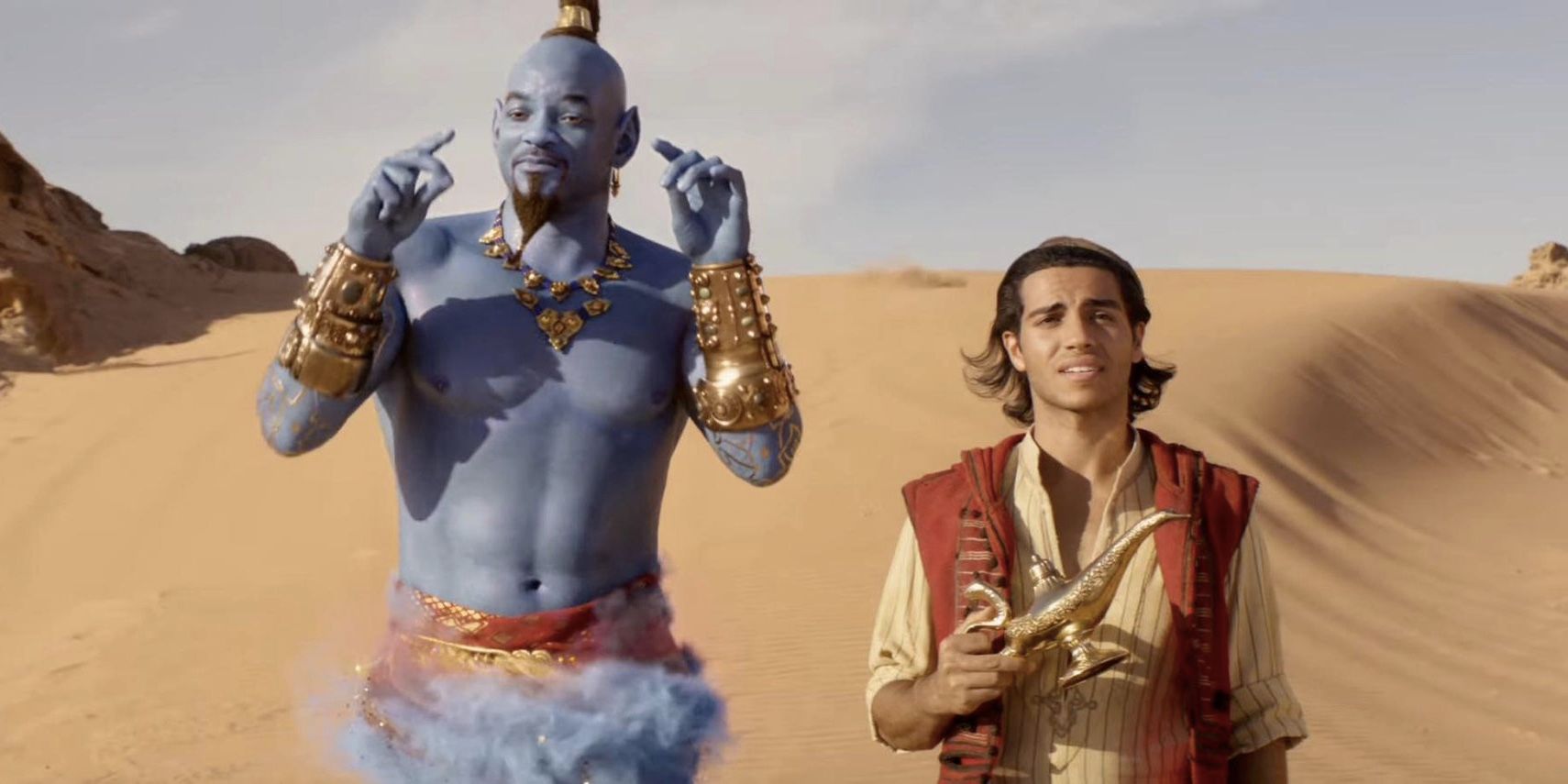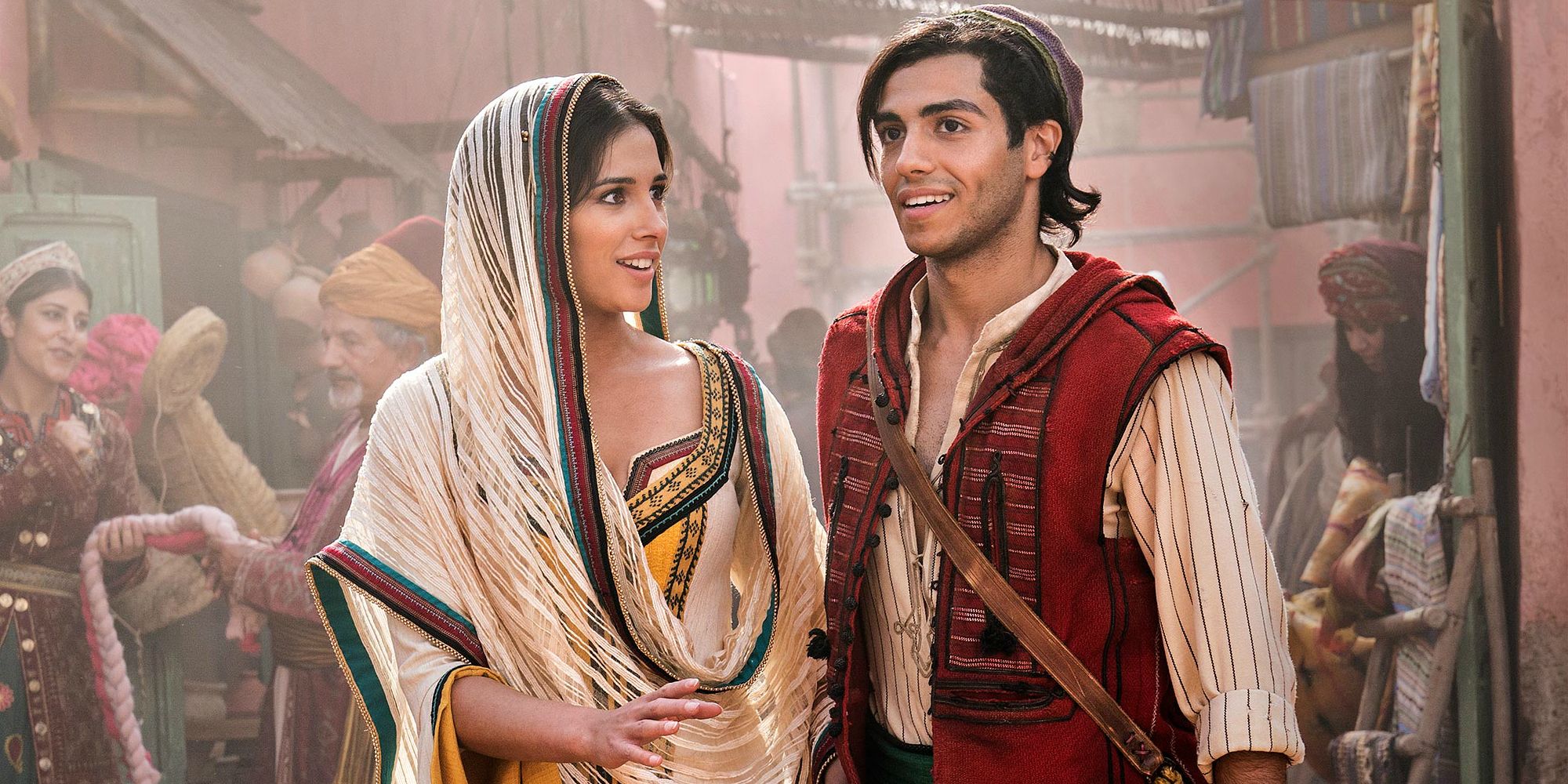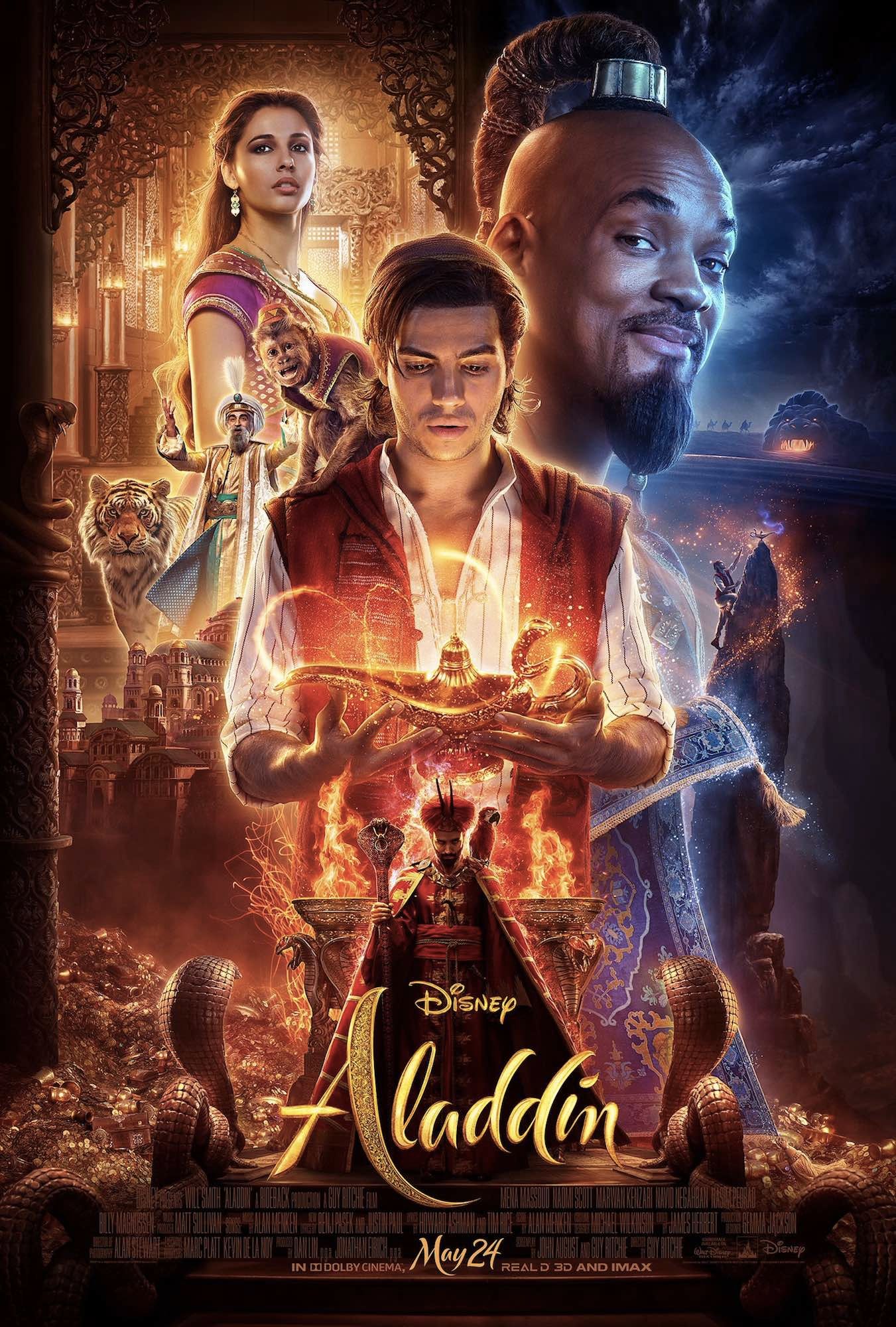When you think of the director you’d want to bring on for a live action version of a Disney movie, Guy Ritchie probably isn’t the first person to spring to mind. His films, like Snatch and RocknRolla or Sherlock Holmes don’t really fit in with the typical Disney fare. When we sat down to discuss Aladdin with Ritchie, he addresses just that along with his approach to bringing this beloved film to life in live action for both a new audience and fans of the original.
You have made your reputation with gritty real world crime capers. In what ways were you able to marry that style with the more colorful Disney environment?
Guy Ritchie: I have been for 15 years, so I’m probably more familiar with this particular world than you’d imagine initially. And Aladdin was an obvious segue because it’s about a street kid, so I’m familiar in that particular department. But my kids are massive Aladdin fans, and I was desperate to make a film that we could all enjoy. So Aladdin seemed like the obvious choice, because it was a lot of stuff that I was familiar with, and it was enough stuff that the kids were familiar with. I thought I could find a sweet spot there, that I could have a voice that was authentic to Disney and Aladdin but simultaneously feel like it was fresh.
When you knew you were going to do Aladdin, did you automatically start envisioning what you would do with it?
Guy Ritchie: Not really, but that comes naturally because we spent a lot of time on the script. So as you’re going through the script, what I wanted was charm from Aladdin and from everyone really, including my son’s favorite character. He chuckles when you ask him his favorite, sort of an annoying chuckle, and he goes, ‘Jafaaar.’ Jafar has a certain sort of humor about him, as well.
But they evolve, and as you get familiar with the actors you pick up their strengths as well. You can tell if they’re enjoying a particular thing, and Jafar’s a good illustration actually. He started going a particular route, and I went with it. You work with the actors and find their strengths, embellish their strengths.
One of the most iconic characters is the Genie, and Robin Williams leaves very little room to play with that character, but Will Smith makes it completely his own. What qualities were you looking for in the Genie when you cast him?
Guy Ritchie: I was looking for Will Smith, essentially. I mean, that was the principal reason we went for him. Will had the caliber, wit, charisma, breadth and depth that you needed from the Genie without getting tangled up in the legacy of Robin. So who could it be? It screamed Will Smith to me.
I’m sure you’ve seen Aladdin the animated movie a ton of times. So what part did you know was going to be the most daunting task getting into production?
Guy Ritchie: I didn’t. Honestly, I just don’t think any one scene or particular task is more daunting than the other. Because sometimes it’s the details. For example, when Aladdin returns Jasmine’s bracelet – I really like that scene, because it’s subtle and I think it’s rather fun. But it’s quite hard to get that sort of chemistry, it feels light of touch. I have to believe the dance that they play with one another, which feels both innocent and flirty but the best part of being flirty. You don’t know it’s going to happen until it’s happening, and you realize, ‘Thank God that happened.’ Because it wouldn’t be the same movie unless you had that. And then you’ve got, obviously, challenging dance sequences and action sequences.
But it’s funny, you don’t really know until you’re in the moment and then you start exploring. It sort of presents itself naturally and organically.
Mena and Naomi knocked it out of the park. How did their characters differ from the animated film, but also how did they mirror them in a similar respect?
Guy Ritchie: It’s a good question, but I principally concerned myself with their strengths. So once they were cast, it became a question of encouraging more Mena and encouraging more Naomi. And I’m the geezer in the middle, so I’m the one who’s got to make sure there’s not too much and not too little of them. But you let them sort of dictate the rhythm of those characters, and then you just naturally or subtly guide that journey for them.
Jasmine is a more contemporary-style princess. She has her own background with a much richer history in this version. Can you talk a little bit about her backstory here?
Guy Ritchie: Yeah. I mean, the obvious character that needed some form of fleshing out was Jasmine. I think the best way of explaining the situation is that there needs to be an equality of challenge. Aladdin had all the challenges, and the Genie had some, but it felt like Jasmine was lacking in that department. So it was a question of giving her a dilemma, of how she didn’t want to be a hollow princess. So how do you authentically give her a voice and a purpose without it being a token? It had to be earned, and we somehow managed to find a scene or a sequence of events that led up to her earning that position. I don’t like to get into the gender argument because I don’t think that’s relevant. I think what’s relevant is that she’s a character within a film, and I’m only interested in characters in films. I don’t care what color they are, I don’t care what gender they are. I just care about what you can relate to as a challenge for a human. It’s not enough to just be in a film and not be challenged if you’re an important character, which she was. So it was just natural that we had to provide a challenge for her.
There’s a subtext in Aladdin that has to do with the struggle between classes, the rich royalty and the lower classes struggling to survive. Can you talk about that subtext?
Guy Ritchie: I can, although it’s nuanced in the sense that I’m not sure I subscribe to a class system in a literal term. What I do subscribe to is a disparity of challenges. The only thing I’m interested in is challenges. The upper have their challenges and the lower have theirs, I’m not sure who has the advantages and disadvantages in those challenges. The only thing I care about it is that each individual has to represent a challenge that’s pertinent to them, because that’s just the foundation of storytelling. You cannot have a story that has any validity, or that the audience can empathize with, until there is a challenge. Arguably, life is about the presentation and transcendence of challenge. Everyone’s obsessed about taking challenges away from people, but you have to realize the very foundation of evolution is based upon a challenge. So if you took away all the challenges and made the world perfect, where does that leave us? While we’re sort of all trying to get rid of challenges, in the interim we should just enjoy the fact that challenges are there in order for us to overcome them. That becomes sort of philosophical and interesting. What it suggests is that you should embrace the situation you’re in now, and by the way that’s consistency of theme. It’s irrelevant where you are in that structure, what’s relevant is your ability to transcend the challenge that you have. You think you want the lamp, but the lamp turns out to be more of a curse than it is a blessing. It’s not that I’m saying we shouldn’t try to transcend our challenges, we should, but we should recognize the currency of a challenge.
You’re either after a utopia, or you’re after a transcendence of challenge. If the goal, incidentally, is a transcendence of challenge – then get that. But the goal is not utopia; it’s a process, not a result. The goal should really be about process, and then the result is secondary and not primary.




